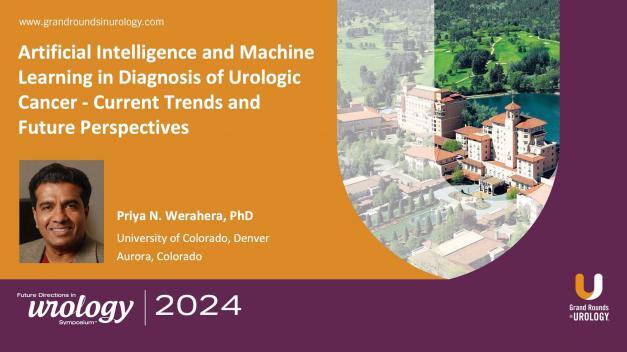Artificial Intelligence and Machine Learning in Diagnosis of Urologic Cancer – Current Trends and Future Perspectives
Priya N. Werahera, PhD emphasizes integrating artificial intelligence (AI) into clinical practice, highlighting this evolving field’s potential benefits and challenges. In this 13-minute presentation, Dr. Werahera underscores that AI must be carefully balanced with the expertise of doctors and pathologists, a crucial part of the diagnostic and decision-making processes.
Dr. Werehera discusses both Virtual AI (diagnosis, symptom management) and Physical AI (robotic surgery, nanotechnology for drug delivery). He notes the benefits of integrating AI into practice, such as precision diagnoses, individualized therapies, and cost savings. He also discusses the importance of supervised and unsupervised learning for AI models, providing a renal cancer example to illustrate different approaches using AI.
Looking towards the future, the speaker expresses optimism about AI’s potential to transform healthcare by enhancing diagnostic accuracy, improving patient outcomes, and streamlining healthcare delivery. This collaborative approach, where AI supports but does not supplant clinicians, is seen as the key to unlocking a bright future in healthcare characterized by innovation and improved quality of care.
Read More




